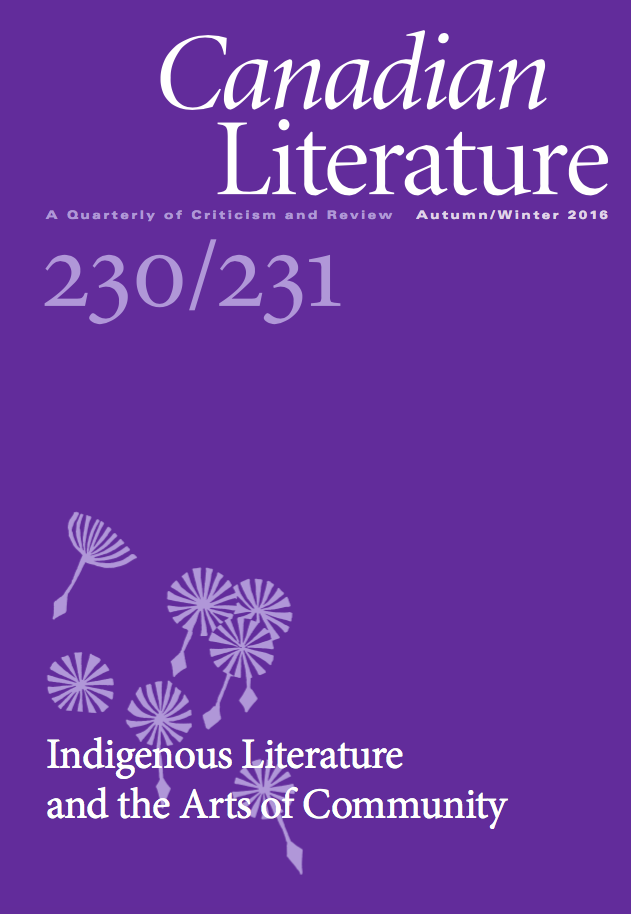Nikîkîwân: Contesting Settler-Colonial Archives through Indigenous Oral History
DOI:
https://doi.org/10.14288/cl.v0i230-1.187955Abstract
This paper seeks to unsettle and contest the role of the small town archive in the production of local knowledges, specifically the ways in which these archives conflict with the narratives told by Indigenous elders in surrounding reserve communities. I intend to use the methodologies I have acquired in Indigenous studies to re-read my grandmother’s account of her displacement from the ‘Swan River Settlement’ and from the township that would eventually become to be known as Kinuso, Alberta (Treaty 8 Territory). I situate my grandmother’s narrative against local history texts, specifically Sodbusters: A History of Kinuso and Swan River Settlement, to locate the ways in which family and colonial histories intersect and are embodied by community members of the Swan River First Nation. My account begins with a detailing of the life of my great-grandfather, August Sound, and how the policies of the Indian Act would come to have a profound effect on him and his succeeding relations. I plot the historical trajectory of my family, or, more specifically, the historical trajectories of my grandmother and great-grandfather to demonstrate how personal archives can illuminate the processes of settler-colonialism in detailed and nuanced ways, and how these personal histories can contest the dominant narratives propagated by white settler-colonial imaginaries. The form of this paper will be an inter-weaving of academic texts and theories with the oral and experiential knowledge of my grandmother, with the ‘narrative history’ of my grandmother serving as the primary text.


